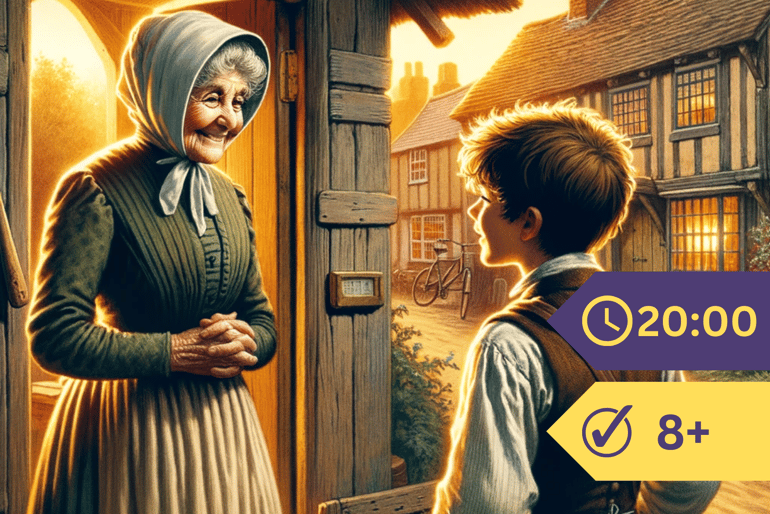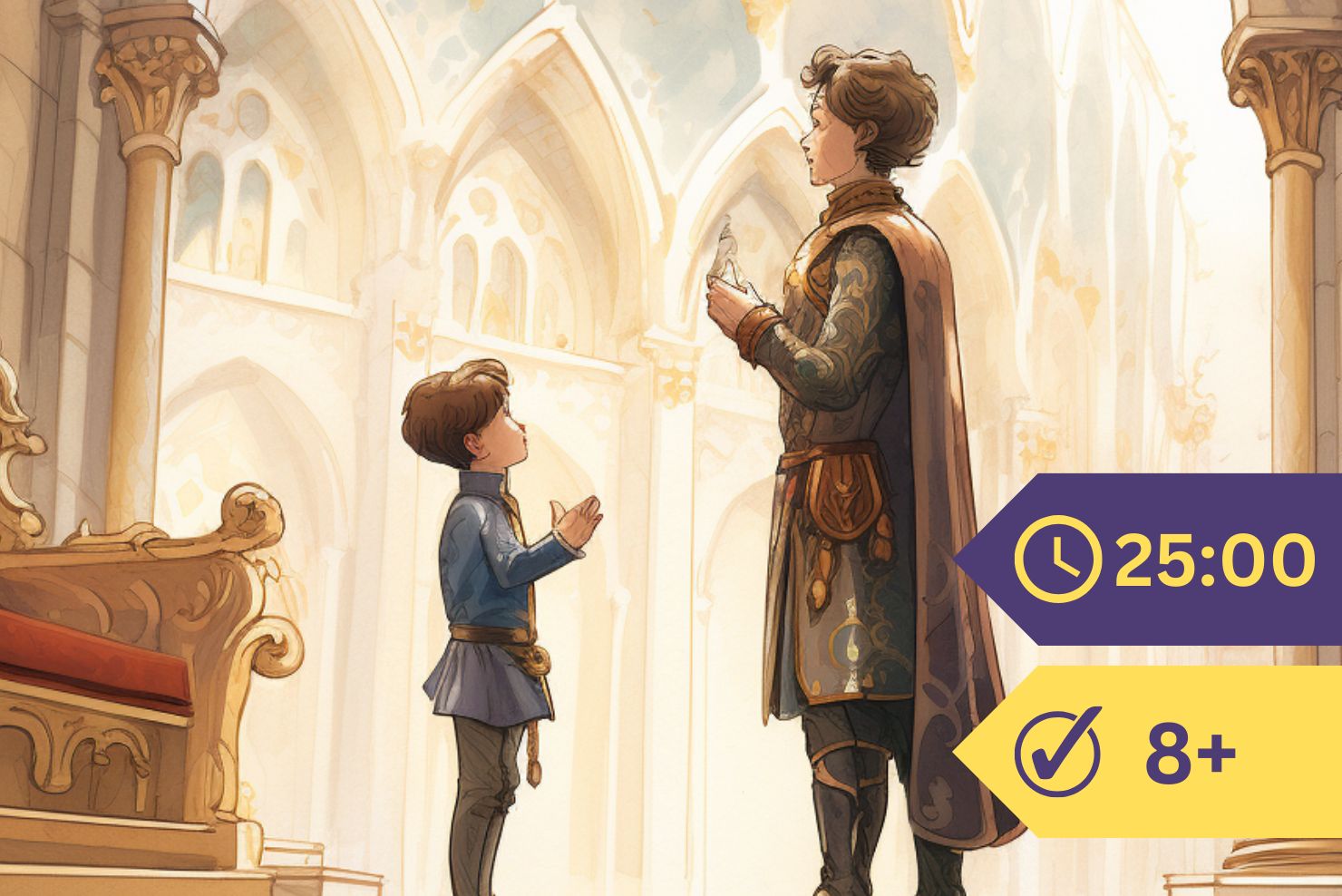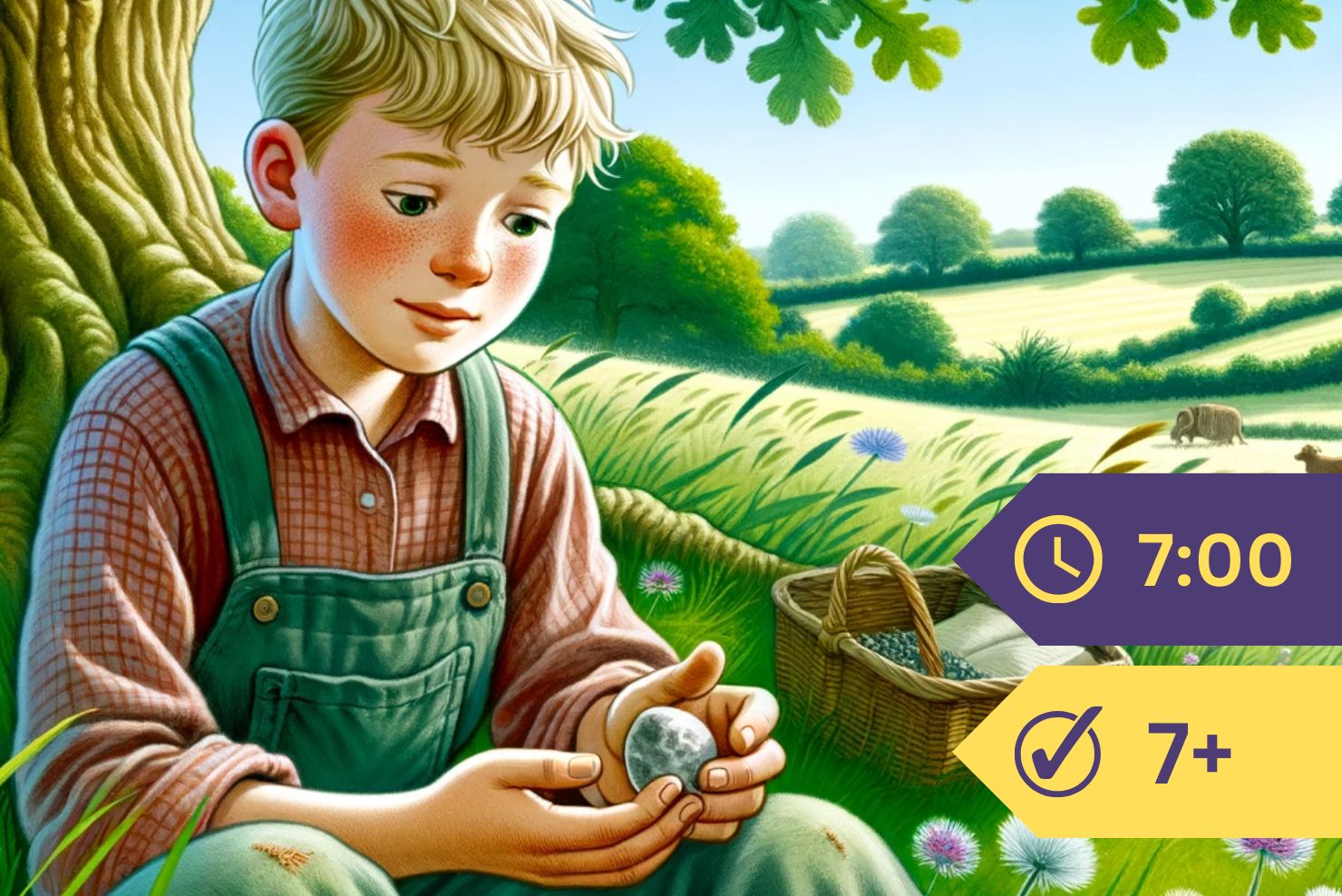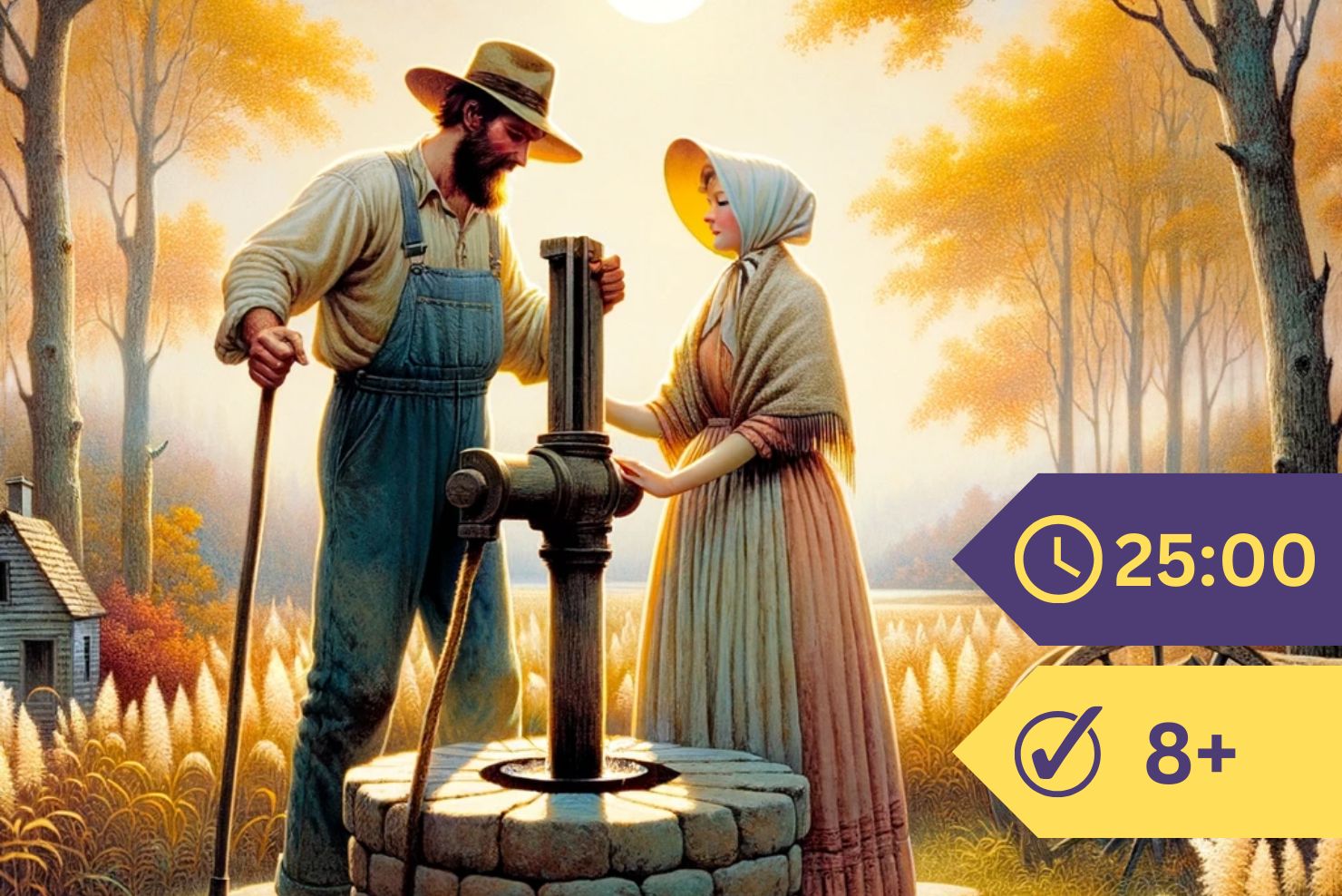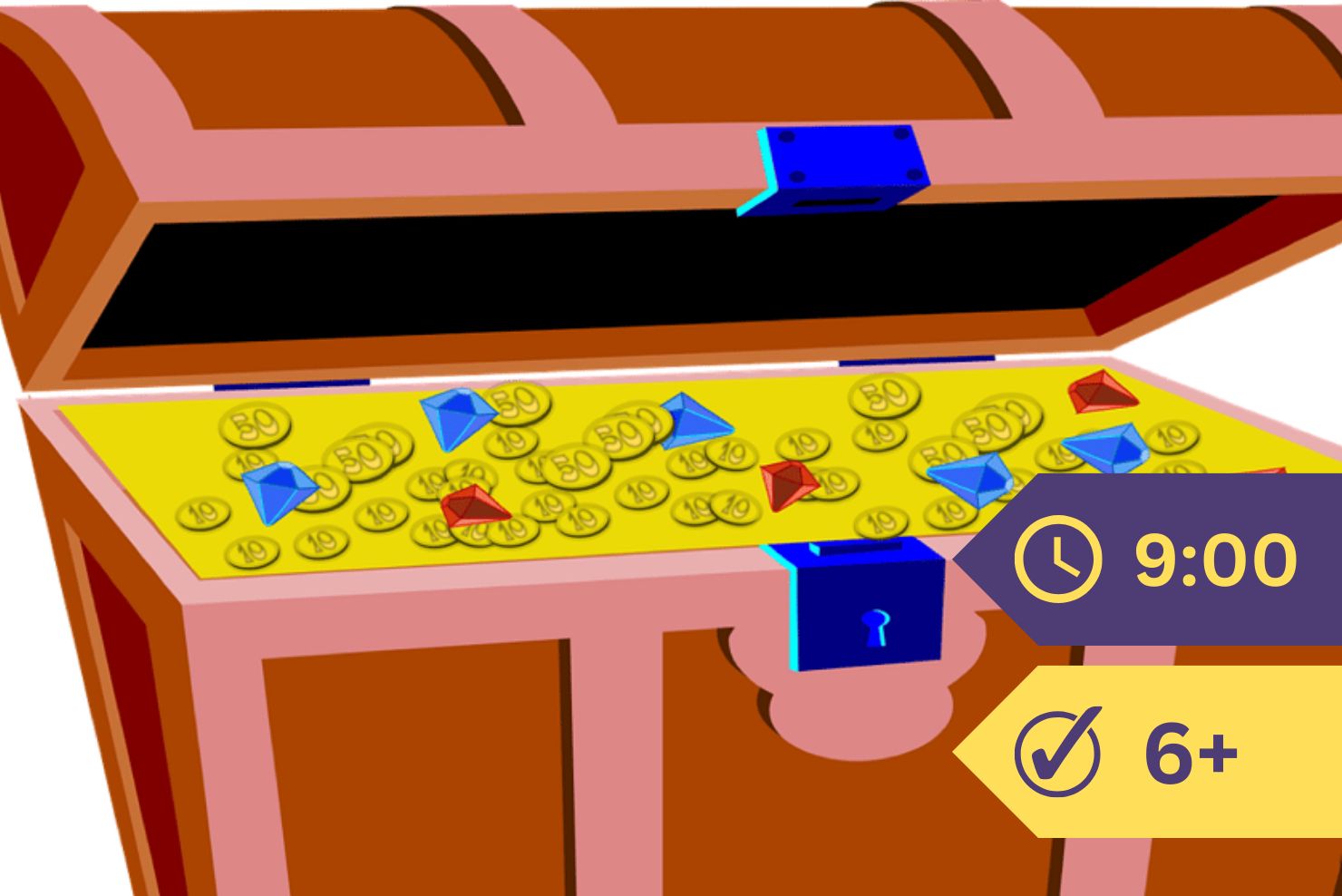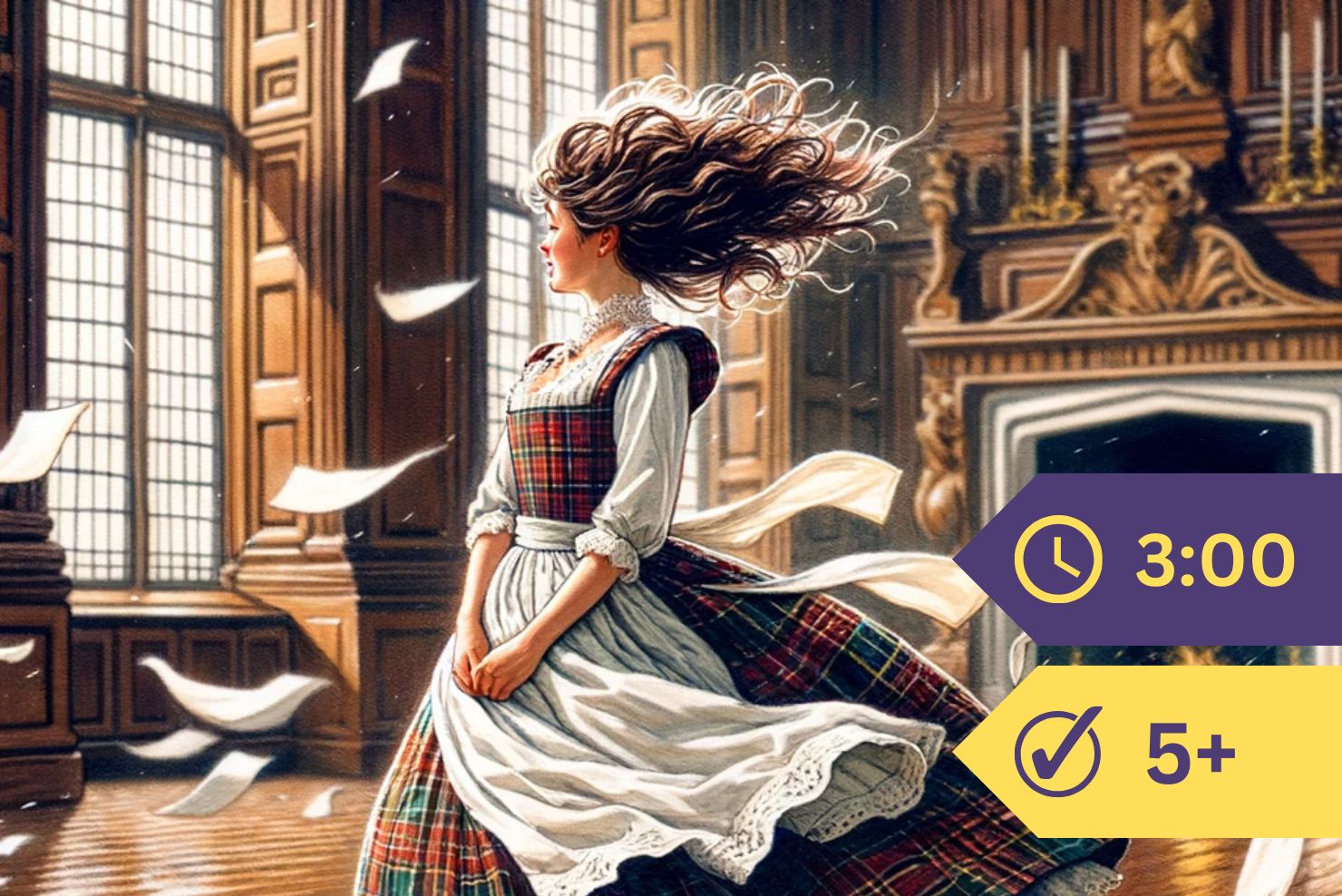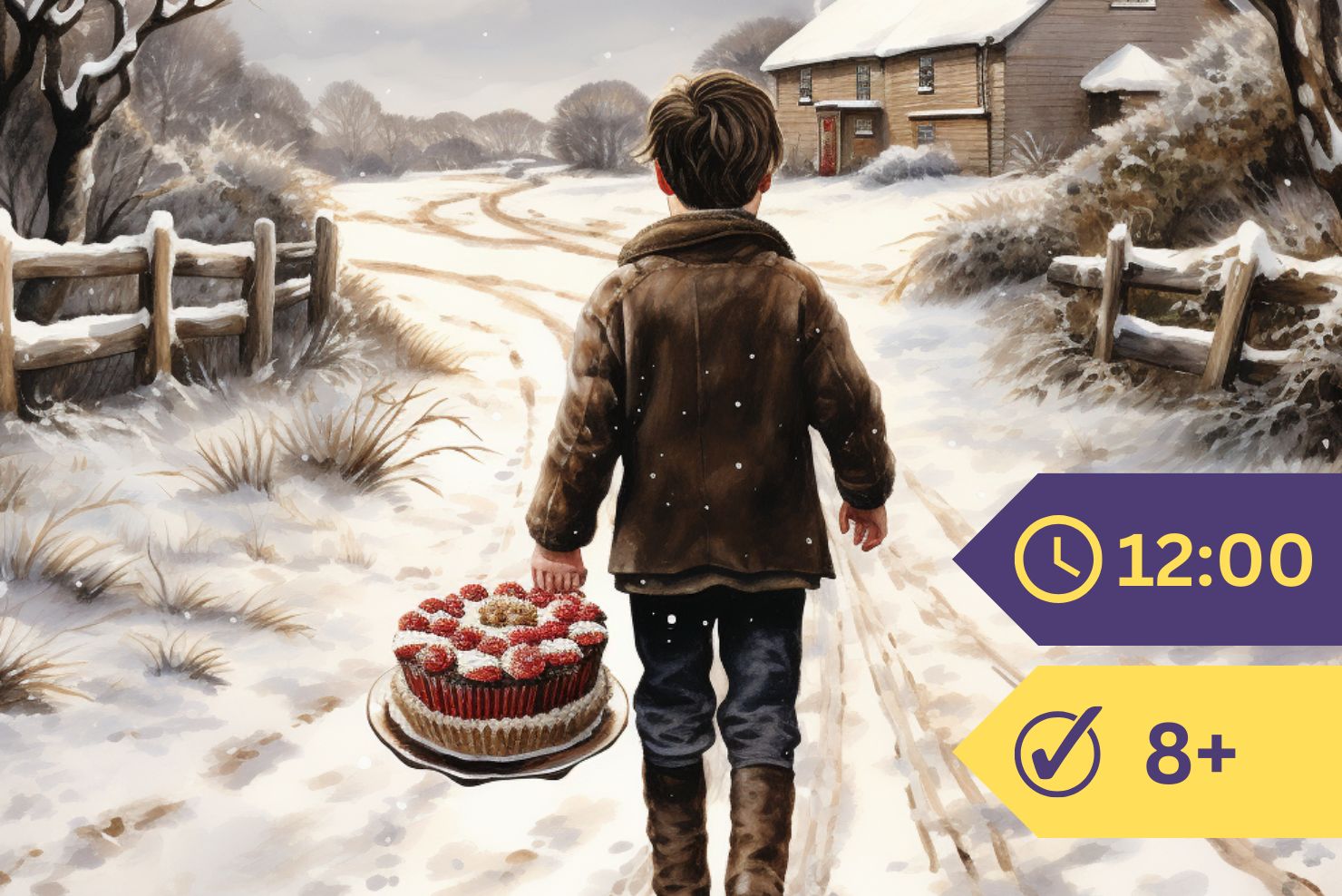There was once upon a time a mother who had but one child, and he was the very joy of her life. He was the finest baby in the world; there was no doubt in her mind about that, and she began to think what he would be when he was a man.
If she went to market and saw there a merchant who was busy and honest and thrifty, she said to herself, “It is such a one my Jack will be some day.” If, as often happened, the Squire upon his prancing horse rode by her door, she straightway thought, “My Jack will have a nag and lands if he lives long enough.” And on a Sunday when she sat in church to hear the lesson read, she wondered if it were not after all a Vicar that her Jack should be.
But when Jack had grown to be a great lad and it was full time for him to begin to show what was in him, he did nothing at all!
If his mother left him to shell peas for dinner, he upset the pan and let the peas lie scattered for the fowls to eat.
If she sent him on an errand, he forgot it, dawdling on the way to listen to the birds or watch the squirrels. And as for a trade or business, naught suited him. This was too hard, and that was too dull. He did not like this, and he would not learn that.
His mother was at her wits’ end, and her husband being dead and she left with none to advise her, she went to the little wise woman whose house stood under a hill in the very village where Jack and his mother lived.
The little wise woman was used to giving advice. Nobody in the village did anything worth doing without consulting her. And she knew something about everything, from the setting of a hen to the curing of a fever. But when the mother first told her of Jack, she had nothing to say, but sat puzzling and pondering, with her head on her hands.
“He thought that nothing would suit him so well as to be a fiddler,” said the mother, “but when I bought him a fiddle, he could get no music out of it. He started to London Town with the drover, but the way was too long and he turned back at the first milestone; and the blacksmith would have taught him his craft, but the laddie could not abide the noise,” said she.
“M-m,” murmured the little wise woman, lost in her thoughts.
“The lads in the village laugh at him so that he will not try in their races and games. Always he is afraid of laughter and jests and failure, yet he is as clever a lad as any, though I say it myself who shouldn’t,” said the mother.
“M-m,” murmured the little wise woman, looking away into the distance.
“All of his life I have watched him and shielded him and worked for him!” cried the mother. “There is nothing that a body can do that I have not done for Jack.”
“Oh, yes,” said the little wise woman, coming out of her puzzling and pondering as bright and as sharp as a new pin. “You can leave him to do for himself.”
“What does that mean?” asked the mother, for she did not like the sound of it. “And what good is it?”
“If you will promise to stay with me till I bid you to go, and will do what I say, you shall see,” said the little wise woman.
The mother was not wishful to do this.
“There is no one to look after the house, nor feed the chickens and pig and cow, nor tend to the milking. And who would cook my poor Jack’s porridge?” said she.
“Besides,” she went on, her eyes beaming, “the lad could never bear me from his sight. ‘Tis ‘Mother, Mother’ from morn till eve with my Jack.”
“So much the better,” said the little wise woman; and in the end, she had her way. The mother promised and stayed.
And a surprised lad was Jack when he came home and found her gone. He looked for her through the house, and in the dooryard where the chickens were waiting for their supper, and out in the barn-lot where the cow was lowing to be milked, and at the pen where the little white pig was grunting and grumbling. And when he found her in none of these places, he went to seek her in the village.
“Is my mother here?” he asked at every door; and so in time he came to the little wise woman’s house with his question.
“Yes, she is here,” said the little wise woman, looking at the lad with her bright twinkling eyes as if she had never really seen him before. And he living in the same village with her!
“Then tell her to go home,” said Jack, “or the chickens will go to roost hungry. The cow must be milked and the pig is not fed, and there is naught but dry bread for ourselves,” said he.
“She will go if you will carry her on your back,” said the little wise woman.
“On my back?” stammered the lad. “Why, the whole village would be laughing if they should see me carrying my mother on my back through the streets!”
“Then she must stay where she is,” said the little wise woman, shutting the door in his face; and she did not open it again.
There was nothing for Jack to do but go home, so home he went. But he did not feed the creatures, nor milk the cow, nor cook his porridge. All the supper he had that night was a slice of bread; and he had no heart to eat that. Early the next morning he was at the little wise woman’s house.
“I have come to carry my mother home,” said he.
“On your back?” asked the little wise woman.
“Aye, on my back,” said the lad with his head hung down. But his mother was a proud woman at his words, you may be sure.
When she was ready with her bonnet on her head, and her shawl about her shoulders, she stood on a chair to get on the laddie’s back.
“Good-bye and thank you,” said she to the little wise woman. Jack had not gone farther than the door when he began to stagger beneath her weight. If it had not been for the little wise woman, he would have tumbled from the doorstone into the tansy bed. There was nothing to do but put the mother down.
“I am not strong enough to carry her,” cried the lad, hot and angry.
“Then she must stay where she is,” said the little wise woman; but she looked kindly on him, and when he was gone she and the mother cried together for love of him.
And as for Jack, he went home and cried. Great lad as he was, the tears rolled down his cheeks. He wanted his mother, and he was hungry besides. But how to get his porridge, he did not know, unless he made it himself; and he did not know how to make it. The first potful he burned, and the next he upset, and the third was lumpy. Having nothing better to eat, he ate it, but it only made him want his mother the more.
The chickens crowded about the door looking so forlorn and hungry that Jack threw them some of the luckless porridge and crumbled a crust for them. And though he could not have told the reason why, he felt the better for doing it.
“Moo,” called the cow from the barn-lot, and a mournful sound it was.
Jack went out to pull down a bundle of fodder for her; and he even tried to milk her, but to say that he did well at it would not be the truth. Then there was the little white pig with his nose through the pen, begging for breakfast.
“Shall I never have done with you all?” said Jack, yet when he had tended them he sat down among the creatures for company.
“I wish I were strong! I wish I were strong!” said he; and if wishing could have made him strong, he would have been a Samson by supper-time.
His heart was sore with loneliness and longing for his mother, yet when night came, he fed the creatures again, and milked the cow. This time he got enough milk to cover his porridge; and as for the porridge, though it was not the kind that his mother made, it was neither burnt nor lumpy.
Early the next morning, he was at the little wise woman’s house with a question: “What shall I do to get strong?”
The little wise woman’s eyes twinkled like dewdrops in the sun as she listened and her face was full of smiles. But she did not hurry her answer. Instead, she sat down on her doorstone with her head on her hand and looked away into the distance, till Jack thought she had forgotten him. Just as he thought this, she came out of her puzzling and pondering as bright and as sharp as a new pin.
“Here is a bargain,” said she: “I have first one thing and then another to send to my cousin in Bolton-town, and if you will take them for me you shall know what I know about getting strong.”
Jack was well pleased with this, and he was for starting out right then to Bolton-town with all the things. But the little wise woman shook her head.
“All at once is a lazy man’s load,” said she.
“But when shall I know about getting strong?” asked Jack, who was none too patient.
“When the work is done,” said the little wise woman; and she bade him come on the morrow’s morn to begin the task.
Whether he would or not, Jack must do as she said, but he went home in good spirits.
“Ye’ll see me come through the gate with my mother on my back yet!” he said to the chickens and the cow and the little white pig in the pen.
Early the next morning, he was at the little wise woman’s house, but early as he was, she was waiting for him with a sack of shucks by her side.
“Here is a present for my cousin,” said she; “and my love goes with it.”
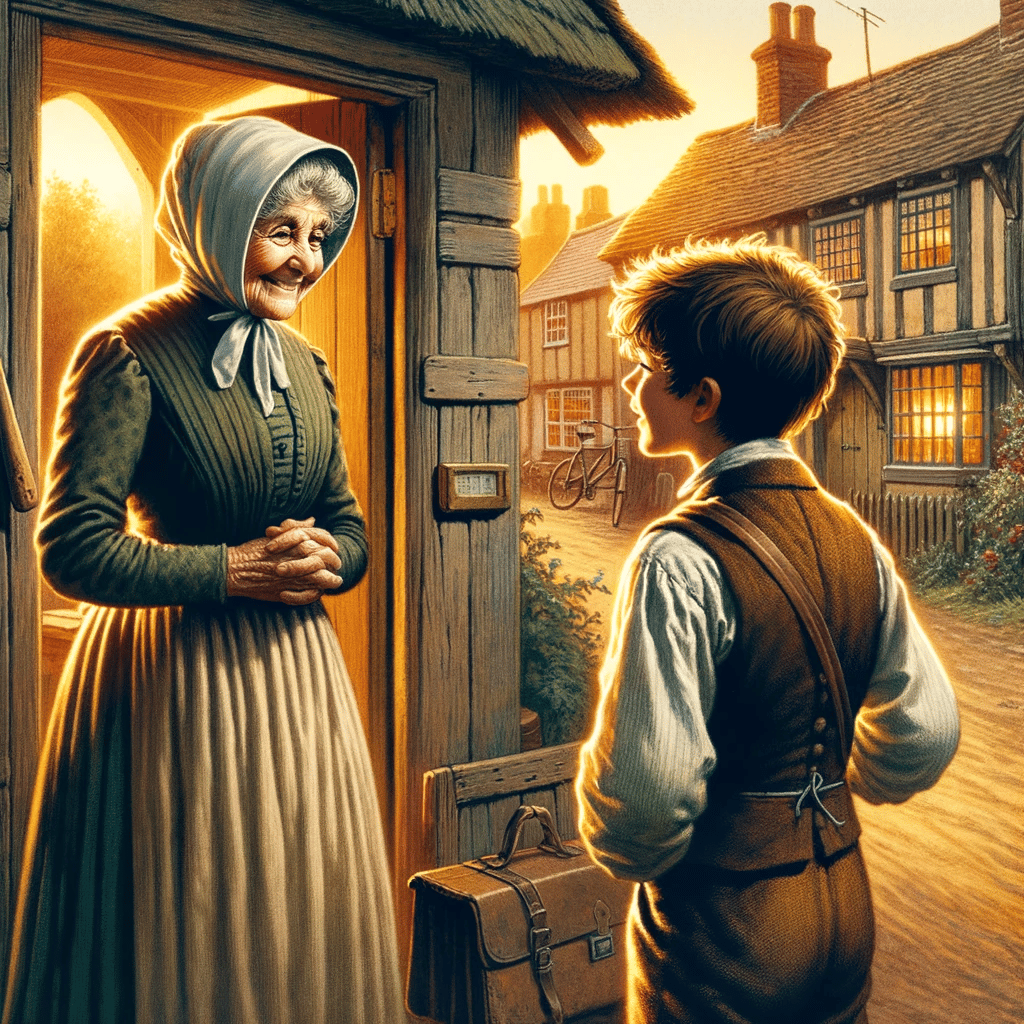
Jack may have thought it was a queer present or he may not, but he picked it up and slinging it across his back, he started to Bolton-town at a fine pace.
“If you keep that up, you will outrun yourself,” called the little wise woman; but Jack did not keep it up. He had not gone far when he slackened his speed and shifted the sack from one shoulder to another. It took him a good part of the day to get to Bolton, and it was sunset when he came again with the empty sack to the little wise woman’s house.
If she thought he had been long on the road, she said nothing of it, but bade him come again on the morrow’s morn. But when Jack got home the creatures were making such a stir about his lateness that he was fairly bewildered with their noise.
“I shall be earlier tomorrow,” he promised, just as if they could understand every word he said. And he patted the little white pig on the head besides. And being more used to the walking, he kept his word when the morrow came.
This day it was a bundle of sticks that he took, and the next a peck of potatoes. A bushel of apples, a truss of straw, and a packet of wool went to the cousin; and many another thing. More than once it was only a bag of stones that Jack carried; but no matter what the little wise woman sent, he took it to Bolton-town without a word.
Rain or shine, good road or bad, he was at the little wise woman’s house to keep his bargain. And if he wondered sometimes when there would be an end to all this present-sending, nobody knew of it unless it were the chickens and the cow and the little white pig.
The village lads were not long in finding out Jack in his new work, and then they were at their teasing, you may be sure.
“See Lazy Jack with a sack on his back,” one would call; and another:
“If the sack breaks his back, ’tis the end of poor Jack.” Or the whole crowd, laughing and shouting together, would keep step with him through the village street.
But Jack would pay no heed to them now.
“When I am strong, they’ll be done with their laughing,” he said; and to show them how little he thought of them, he took to whistling. But no sooner had he started it, than he liked it for itself. The more he whistled, the lighter his load seemed, and the shorter the road.
The little wise woman was astonished at his quickness these days, and you may be sure his mother heard of it.
All at once the lads left off teasing him. It was “Jack, whistle me ‘Over the Hills and Far Away,’ and “Jack, whistle ‘The Hunt is Up,'” and “Jack, I’ll carry your load to the west gate if you’ll teach me to whistle.”
Jack would not give his load to anyone, but he was not ill pleased with company. And as for teaching a laddie a tune, it was naught but sport for Jack.
Almost before he knew it, he was friends with all the lads and every day when his errand for the little wise woman was done, he shared in their laughter and kept up with the best of them in their games.
He had learned to make good porridge by this time, and he ate plenty of it, too, you may be sure. And he took such care of the creatures that the hens laid eggs every day, the cow gave two gallons at a milking, and the Squire himself stopped to praise the looks of the little white pig.
Jack would have been a proud lad and a happy one if only his mother had come home.
When he caught so much as a glimpse of her through the little wise woman’s door, he was glad for a week; and if he wished once that he could bring her home on his back, he wished it a thousand times.
One morning he started off to the little wise woman’s house with his mind made up to ask her when his task would be done. And he was hurrying along at a fine pace when he came upon a great sack of meal in the road. Spying the mill wagon from which it had fallen just ahead, the lad made haste to shoulder the bag and catch up with the cart.
“‘Tis a fine strength you have to carry as much as a man’s weight as if it were a bag of feathers,” said the driver as Jack came up.
“A man’s weight!” cried Jack, and throwing the sack into the wagon he was off and away like a young colt on a frosty morning, before the driver could say so much as “Thank you.”
Jack did not stop till he saw the little wise woman waiting for him on her doorstone.
“I am strong!” he cried, never heeding that she had no present beside her for him to carry that morn. “I can lift the weight of a man! I can carry my mother home this very day.”
“Aye,” said the little wise woman. “Strength grows by use, and it’s not for nothing that you have trudged to Bolton-town with your burdens,” said she; and opening her door, she showed him his mother all ready and waiting to go home with him.
Jack was the happiest lad in the land as he marched away with her on his back.
He smiled at everyone he met, and everyone smiled at him, and the mother smiled whether they met anyone or not.
“The chickens and cow and little white pig will be glad when you are home again,” said Jack, “but you need have no bother about them. I shall feed them and tend them, never fear.”
“And I shall learn the blacksmith’s craft or whatever you bid me; but it is a farmer I want to be, with fields, and fowls, and cattle, and pigs, aye, and a nag as fine as the Squire’s to ride,” said he. “I’ve always thought you would have a nag and lands if you lived long enough,” said the mother. And she was a proud woman that day, you may be sure.
And what of the little wise woman? Oh, she was all smiles and twinkles as she stood on the doorstone watching Jack and his mother till they were out of sight.
“You can’t make a rose out of a cabbage,” said she to herself; “but there’s always a chance to make a man out of a lad.”

